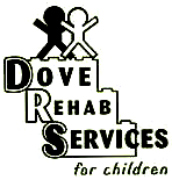Children with Modulation Disorders Challenges with behavior often result when a child is unable to cope with responses to sensory input. This may happen when sensory input seems to be overwhelming to the child. Frequently, the behavior may be due to a Sensory Processing Disorder (SPD). The condition is referred to as a type of SPD called a modulation disorder. “Sensory Modulation Disorder” is
Learn more
Key Issue: Level of Arousal The Under-Aroused Child Setting up home program activities for children who have difficulties with self regulation and are Under-Aroused can be a challenge. The seeming lack of interest of the Under Aroused child may often be shown through poor attention to task, limited social skills, or lack of readiness to join in activities. Generally speaking, these children tend to
Learn more
Key Issue: Level of Arousal The Over-Aroused Child Setting up home program activities for children who have difficulties with self regulation and sensory issues can be a challenge. Many children who have these issues show a variable sense of what is “just right” in terms of attention, social skills, excitement and readiness to join in activities. When brought together as a group, these issues
Learn more
Many exercises need not include expensive equipment, instead a good eye for simply applying common everyday activities with a view to looking for inherent resistive exercise is what is needed. What seems to be key however, is the use of regularly scheduled periods of exercise 10-20 minutes twice daily depending upon the age of the child. Researchers continue to show caretakers that children
Learn more
Self–regulation is the ability to monitor and control one’s own behavior, emotions, or thoughts, altering them in accordance with the demands of the social and physical environment. The 4 main components of self-regulation have been referred to as the 4 A’s of infancy: Affect Attention Action Set Arousal The disordered quality of any one of these factors is most easily seen during infancy through the
Learn more
